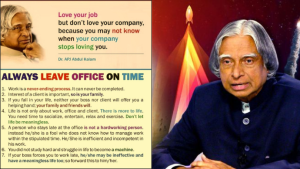
The recent comments by SN Subrahmanyan, Chairman of Larsen & Toubro (L&T), have sparked a national debate about labor, work-life balance, and the treatment of workers in corporate India. In a statement that quickly spread across media, Subrahmanyan expressed regret about not being able to make employees work on Sundays, stating, “If I can make you work on Sundays, I will be happier because I work on Sundays too.” He further questioned what workers do at home, implying they may grow bored staring at their spouses.
Besides facing criticism from some women folks, Subrahmanyan’s remarks have stirred controversy, particularly among worker unions and labor leaders. Many have raised concerns over the fairness of working seven days a week, questioning whether such demands are truly in the best interest of workers or simply serve corporate interests.
Union leaders argue that the question should not be about whether workers should work on Sundays, but rather about whether it is worth sacrificing family life for companies that are owned by private interests, often with little financial benefit to the workers.
One private company worker shared their frustration, asking, “Do we get a share in the profits? Salaries at the managerial level increase by 10-20%, but ordinary workers only see a raise of 1-2%.” Many workers also voiced concerns over layoffs and the lack of support from corporations in times of personal trouble.

The article also contrasts Subrahmanyan’s comments with the traditional work ethic of joint families in rural India, where families often worked long hours together to achieve success. In these family-run enterprises, family members could see the direct benefits of their labor. The article questions whether working for large corporations, where personal sacrifice often doesn’t lead to direct rewards, is a sustainable and ethical model.
Notably, former Indian President APJ Abdul Kalam’s philosophy of balancing work and family was referenced, highlighting the tension between corporate demands and family life. While Kalam worked long hours himself, he consistently emphasized the importance of family time, advising others to leave the office on time and prioritize personal relationships.
Subrahmanyan’s comments have also received support from BJP and RSS leaders in various articles, who have connected his ideas to religious principles. Political analysts view it with references to L&T’s role in the construction of the Ram Temple in Ayodhya. This alignment has added a political dimension to the debate.
L&T’s spokesperson supported chairman’s comments. He says chairman’s statement was reflection of larger picture in the interest of nation.
Ultimately, the discussion raises broader questions about the ethics of demanding relentless labor from employees, the responsibility of corporations to their workers’ well-being, and the need for a healthier balance between work and family in modern corporate culture.





